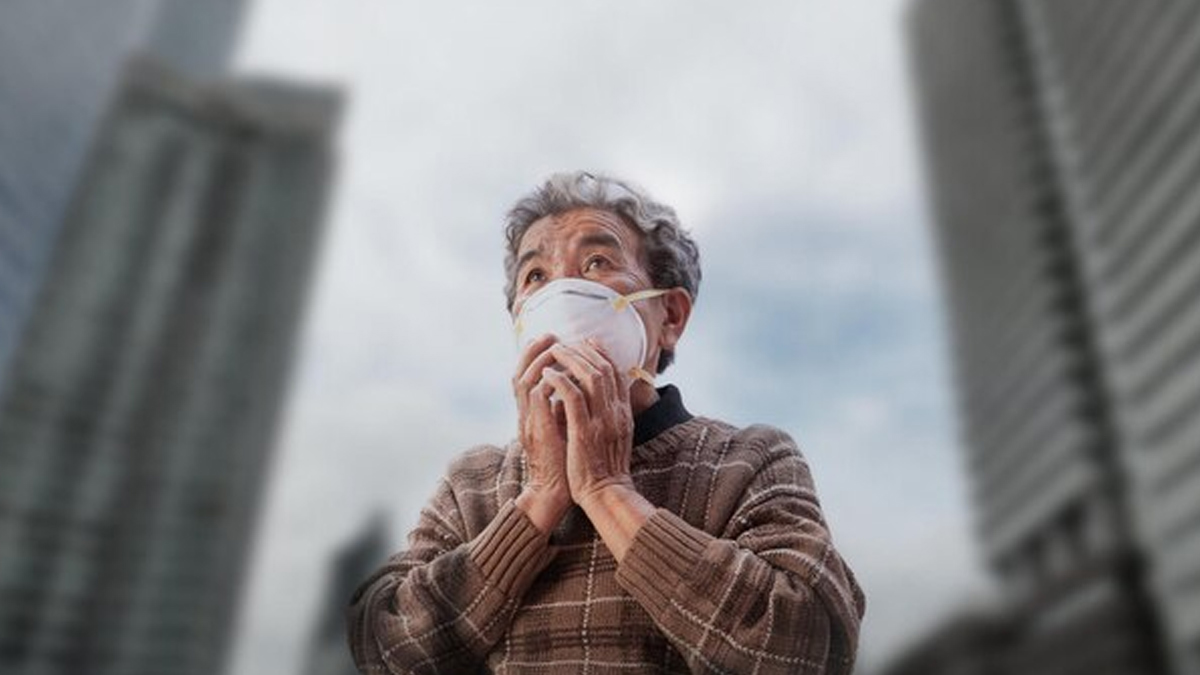
Air pollution in Delhi has reached alarming levels, posing severe health risks to residents. Authorities have urged people to take precautions, such as wearing masks, staying indoors, and using air purifiers, to minimise exposure to harmful pollutants. The city's deteriorating air quality has become a public health crisis, contributing to respiratory issues. In addition, the hazardous air poses a greater risk to those with pre-existing conditions like Cardiovascular Diseases (CVDs).
Table of Content:-
For heart patients, it is crucial to take necessary measures to reduce complications. OnlyMyHealth spoke to a cardiologist to understand the health impact of poor air quality on the heart and what patients can do to reduce their risk.
Also Read: Expert Suggests To Use THIS Mask In Delhi-NCR During Severe Pollution
How Poor Air Quality Affects Heart Patients

There are several ways poor air quality can affect people with heart diseases. "Poor air quality can significantly affect heart patients by exacerbating existing cardiovascular conditions and increasing the risk of new heart-related issues," Dr Vikrant Khese, Consultant Cardiologist, Apollo Clinic, Kharadi, Pune, told the OnlyMyHealth team. The Global Burden of Disease (GBD)study estimated that pollution was behind 90 lakh deaths worldwide in 2019, 61.9% of which were due to CVD, including Ischaemic Heart Disease (IHD) (31.7%) and stroke (27.7%).
Some of the specific risks heart patients should be aware of are:
Increased risk of heart attack: Exposure to air pollution, particularly fine particulate matter (PM2.5), can trigger inflammation and oxidative stress in the body, which may lead to the rupture of arterial plaques, increasing the likelihood of a heart attack.
Worsening of existing heart disease: Poor air quality can worsen conditions like Coronary Artery Disease (CAD) and heart failure. Pollutants like ozone and nitrogen dioxide can stress the cardiovascular system, leading to increased blood pressure and heart rate, which can be harmful for patients with heart conditions.
Increased blood pressure: Air pollution can cause the blood vessels to constrict, raising blood pressure. High blood pressure is a major risk factor for heart disease and stroke, and it can lead to further complications in heart patients.
Arrhythmias or irregular heartbeats: Exposure to pollutants, especially in people with pre-existing heart conditions, can trigger irregular heart rhythms (arrhythmias), which can be dangerous, particularly for those with pacemakers or those prone to such conditions.
Reduced oxygen supply: Polluted air reduces the oxygen levels available to the body, making it harder for heart patients to get enough oxygen, especially during physical activity. This can lead to shortness of breath, fatigue, and increased strain on the heart.
Increased inflammation: Air pollution causes systemic inflammation, which can accelerate the progression of heart disease and increase the risk of developing other cardiovascular conditions such as clot formation.
Elevated risk of stroke: The same air pollutants that impact heart health can also increase the risk of strokes, as they may promote blood clotting and increase the likelihood of blockages in the brain's blood vessels.
Also Read: Amid Deteriorating Air Quality, Could Artificial Rain Provide Relief? Here's An Explainer
Precautions Heart Patients Should Take Amid Severe Air Pollution

According to Dr Khese, heart patients should take various steps to protect themselves from poor air quality. These include:
- Staying indoors or limiting outdoor activities when air quality is poor, especially if the Air Quality Index (AQI) is above 200
- Wearing an N95 mask or a mask designed for pollution protection
- Using air purifiers with HEPA filters to improve indoor air quality
- Maintaining a healthy lifestyle, eating a balanced diet rich in antioxidants and vitamin C, staying hydrated, and getting enough sleep
- Practising deep breathing
- Scheduling regular heart check-ups
- Seeking medical attention for severe symptoms
Conclusion
While air pollution is harmful for everyone, those with preexisting health conditions, like CVDs, should take extra care. Poor air quality can prove extremely harmful for heart health, contributing to the risk of heart attacks and strokes. Amid severe air pollution, doctors advise staying indoors and reporting any sudden discomfort and pain in the body.
Also watch this video
Read Next
What To Expect After A Heart Attack: Expert Explains Recovery, Challenges, And Heart Healthy Tips
How we keep this article up to date:
We work with experts and keep a close eye on the latest in health and wellness. Whenever there is a new research or helpful information, we update our articles with accurate and useful advice.
Current Version